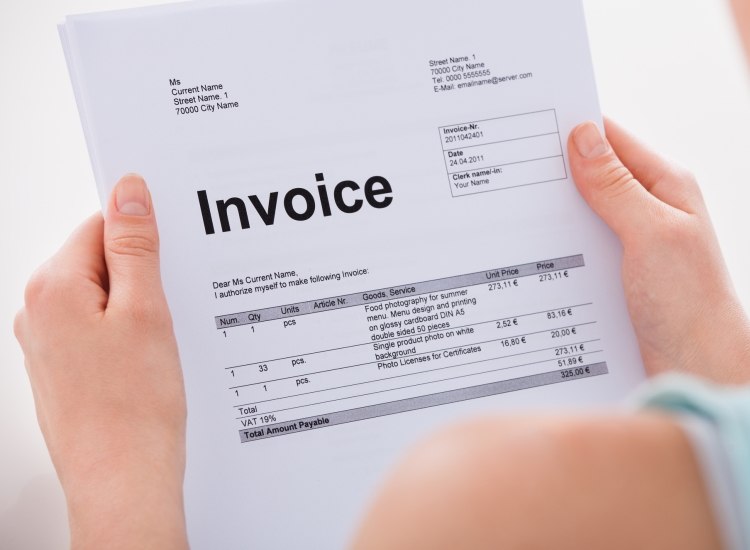Late payments and overdue invoices are a constant battle for some small businesses, with business owners reporting spending over half of their working week chasing unpaid debts.
To help, introducing and implementing payment terms to your credit control strategy can support you and your teams to ensure best practice and prompt payment.
Working with a professional invoice collection agency is also a great method to free up your valuable time and ensure invoices don’t slip through the net.
In this post, we’ve pulled together some of our top tips to help ensure you get paid sooner, starting with those all-important payment terms.
Invoice payment terms
Invoice payment terms outline to your customers exactly how and when you want to be paid.
This means your terms should include your accepted payment types, the currency you prefer to be paid in, any late payment charges that will apply, etc.
Most importantly, your payment terms should clearly state how long your customers have to pay from the issue of your first invoice.
This is typically 30 days; however, sector changes are afoot, and most businesses do now stipulate shorter payment terms.
(Interestingly, if you stipulate shorter invoice terms and conditions, then invoices are more likely to go past the due date, BUT you will still be paid sooner.)
A sector view
The retail sector is one of the best sectors for paying invoices promptly, with businesses only waiting an average of 12 days to be paid, and only 11% of these invoices are paid late.
In the IT and Telecoms sector, the percentage of late payment increases to 20%, with an average wait time of 36 days for payment.
If you are experiencing problems with late payment, shortening your payment terms could be a viable solution.
At Direct Route, we work with businesses across various sectors to help in the recovery of unpaid and outstanding invoices. Offering customers a quick turnaround and zero cost options, our team recovers the monies owed to you quickly and effectively.
How to collect on overdue invoices
Some of our top tips to ensure prompt payment include:
Introduce shorter payment terms – as we’ve previously mentioned, shorter payment terms do work for businesses, and you shouldn’t feel bad for having short payment terms in place. In fact, close to 75% of invoices today ask for payment to be made within two weeks of the invoice being issued. However, if the invoice is for a considerable sum of money, customers may ask for longer payment terms. In these instances, it’s advisable to negotiate to find a suitable solution for both parties; this may be in the form of deposits or regular monthly payments.
Make sure your customers know and fully understand your payment terms. Clearly communicating these at the start of any business transaction can help avoid confusion and misunderstanding in the long term. Sending regular reminders, monthly statements, carrying out phone calls, etc., are all great ways to stay in regular communication with your customers to clarify any issues before they become a bigger problem.
Make sure you send your invoices promptly – this is vital, as your invoice payment terms and due date will not come into effect until the customer has received their invoice.
This is why it is essential that you don’t put invoicing off, as you will only delay payment further. You can look to speed up your invoicing by using templates, sending invoices electronically, and even invoicing immediately after the job is complete. It’s also important to keep your invoicing simple. Ensure the invoice includes all of the necessary information and it is in a straightforward, easy-to-understand format. Make sure invoices are addressed to the right person and include all relevant purchase order numbers – it is surprising how many invoices are held up because of this.
Make sure to chase outstanding payments – as due dates begin to approach, send out friendly reminders and follow up on these again as soon as invoices go past the due date. If email reminders don’t work, make sure to pick up the phone and make the call. To help, working with a specialist debt collection agency like Direct Route can help to take away this element of credit control for you, allowing you to focus on your everyday business operations while we collect payments on your behalf.
Keep detailed records of all communication, work carried out, time, inventory, etc.
Request deposits for larger jobs – this is not an uncommon practice on large jobs, and it will help you manage your cash flow more effectively.
Introduce late payment charges – you are entitled to add interest and late payment charges to any overdue invoices. This strategy should not be used lightly, but it can be a great motivator for prompt payment.
We understand that invoicing and credit control management can take up a lot of time. More often than not, this also leads to more administrative duties, especially if invoices go unpaid.
That’s why you must implement robust and streamlined credit control processes to help manage late payments and overdue invoices effectively and efficiently. In addition, making gradual changes to your payment terms can positively impact your cash flow and the financial security of your business.
At Direct Route, we can support you and your credit control teams further, acting as a professional extension to your team. To find out more, call 0330 229 1991 or email us with your requirements to memberbenefits@directroute.co.uk.
